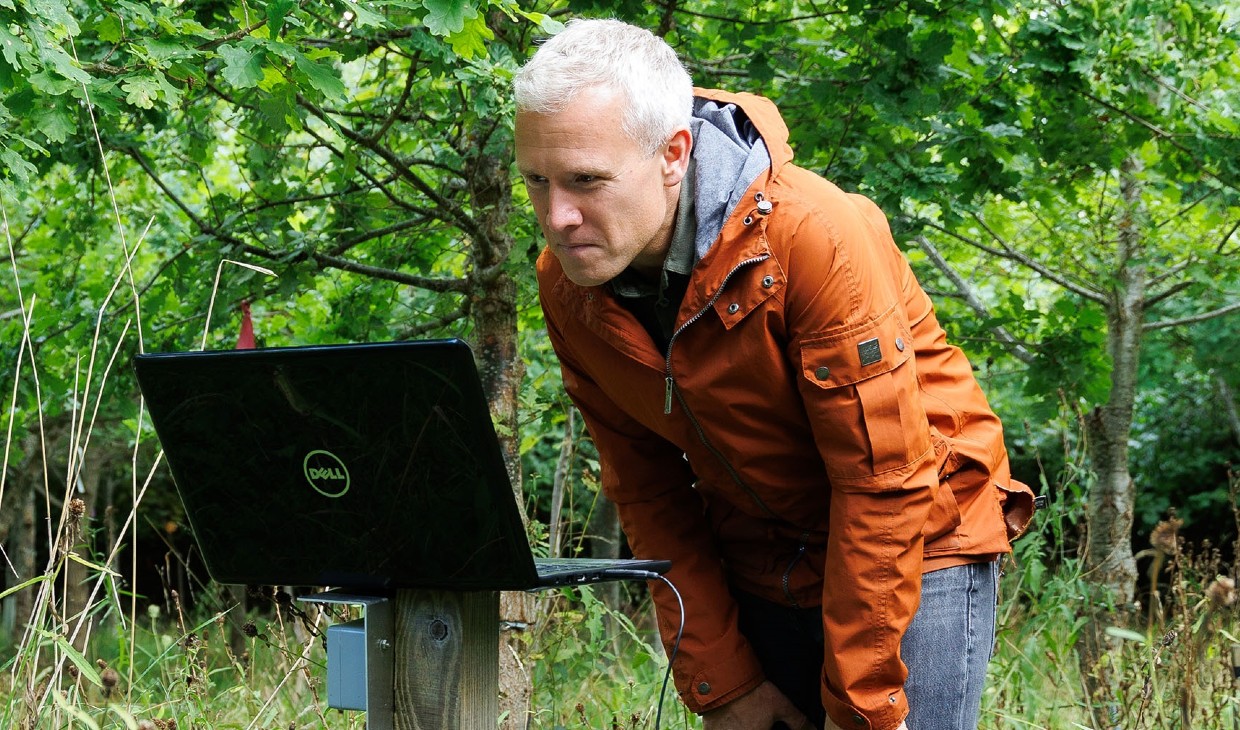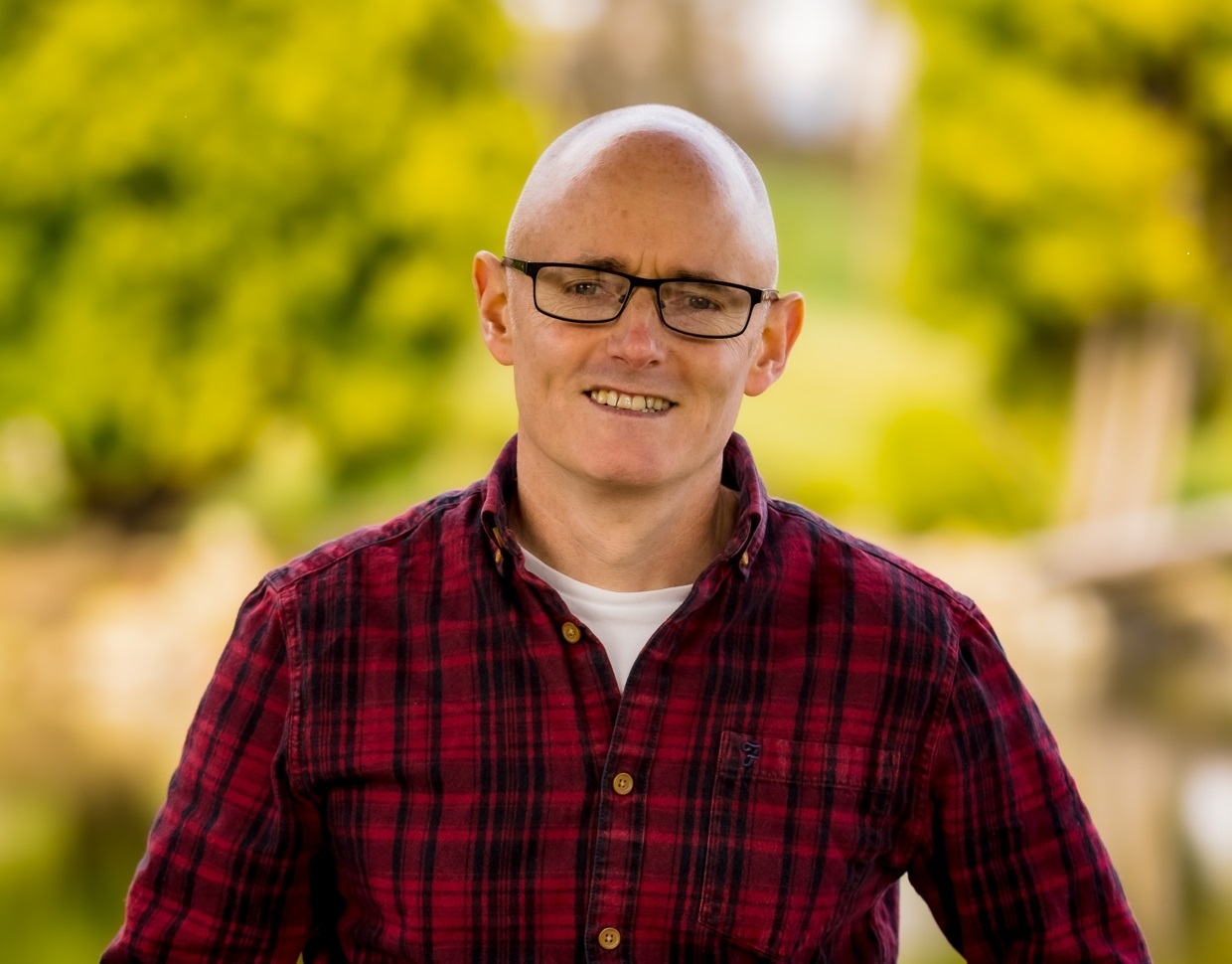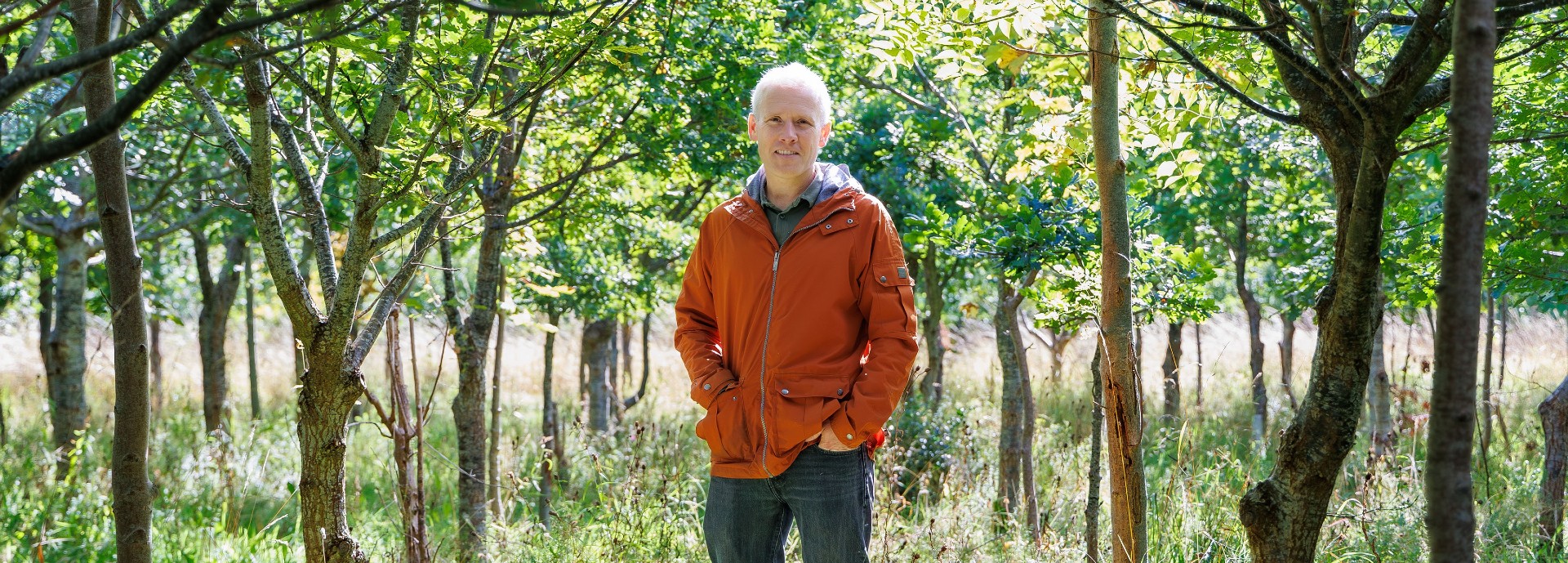A pioneering project led by University of Stirling scientists aims to develop a new carbon negative food source.
The £800,000 government-funded initiative will create four new jobs – three on the Isle of Bute where a trial has begun, and one at the university – as well as support the development of a new lab on the island.
If the trial is successful, it could be replicated worldwide, creating thousands of jobs and a food source that can contribute to tackling climate change.
All major food production in the UK currently emits greenhouse gases, contributing to the country’s carbon footprint. The UK government wants to establish new food sources which deliver against Net Zero targets and address an overreliance on imports.
Research by experts at the University of Stirling previously found planting fungi with trees to create protein-rich mushrooms can sequester up to 12.8 tonnes of carbon per hectare annually.
The crop, which can be consumed fresh or processed into meat-alternative products, has the potential to produce a nutritious food source for nearly 19 million people a year, globally.
Now, the University of Stirling and truffle producers Mycorrhizal Systems Ltd has begun a two-year trial on Bute which will see researchers cover the root system of new trees with fungi that produce edible mushrooms.
A team led by Honorary Professor Paul Thomas will then assess the environmental benefits and wider economic impact.
 Professor Paul Thomas
Professor Paul Thomas
Professor Thomas is the founder of truffle producers Mycorrhizal Systems Ltd, which is ploughing £135,000 into the project and running the lab.
Professor Thomas said: “This is a game-changing idea which, if done at scale, will increase domestic food production, incentivise tree planting and help mitigate the impact of climate change.
“By tackling land-use conflict and creating a calorific output from land that would otherwise not produce food, and at scale, the project outcomes will positively contribute to such priorities and create a net increase in UK food production of up to 1,000 tonnes for each 1,000 hectares of afforestation incorporated into the project.”
Professor Alistair Jump, Dean of the Faculty of Natural Sciences, who co-authored the research and will partner on the initiative, said: “This project will place the UK at the forefront of EMF (ectomycorrhizal fungi) technology.
“Research suggests a carbon sequestration rate of up to 406kg for every kg of protein produced whilst also aiding biodiversity and conservational goals.
“This sequestration is in stark contrast to every other major food production system which results in an emission during production.”
 Professor Alistair Jump
Professor Alistair Jump
If the trial is successful a subsequent rollout could create hundreds of jobs in the UK and thousands worldwide.
Professor Jump said: “Much of the work will be distributed in rural areas, supporting a positive socio-economic impact through job creation and infrastructure development.
“The innovation will also have a direct annual contribution to the UK economy and further economic benefits arise through the distribution chain.”
Funding for the two-year project is provided by Innovate UK and BBSRC (Biotechnology and Biological Sciences Research Council), part of UKRI (UK Research and Innovation), the largest UK public funder of non-medical bioscience.
Grants will support four new jobs and the development of a new laboratory and trial facility on the Isle of Bute.
The study which laid the groundwork for the trial was published in PNAS (The Proceedings of the National Academy of Sciences), the prestigious journal of The National Academy of Sciences (NAS), in March.

